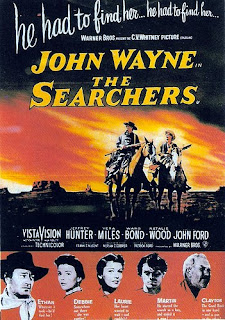Wise: Hi there, Werth!
Werth: Hi, Wise! Don't you just love the smell of mustard gas in the morning?
Wise:I'd rather smell bacon and blueberry pancakes.
Werth: Then bring your maple syrup to Film Forum today and watch the gripping Lewis Milestone WWI classic, All Quiet on the Western Front (1930). The film, based on the Erich Maria Remarque book, won the Best Picture and Best Director Oscar that year and was even the subject of a Dogville Short spoof, So Quiet on the Canine Front (1931).
Wise: You've really arrived when you get your own fido farce. But when I think of movies depicting the horrors of war I immediately think of Cold Mountain (2003), Anthony Minghella's sweeping adaptation of Charles Frazier's novel. Told mostly in flashback, the film follows wounded Confederate soldier W.P. Inman (Jude Law) as he struggles to return to the mountains of North Carolina and his sweetheart Ada Monroe (Nicole Kidman).
Along the way he encounters heroes, helpers and blackguards, all while trying to avoid the Confederate Home Guard which is rounding up deserters and forcing them back to the front lines. Back home, Ada loses her father and struggles to survive the wartime privations with help from Ruby Thewes (Renée Zellweger), a mountain girl with a sharp tongue and strong back.
Werth: And an accent that could make the hillbillies from Deliverance blush.
Wise: That accent won her a Best Supporting Actress Oscar.
Werth: And inclusion in a group of cursed actresses.
Wise: Still, she is one of the best things in a movie that occasionally loses its bearings. Minghella's previous successes—The English Patient and The Talented Mr. Ripley—both are sweeping, highly romantic epics, but somehow Cold Mountain fails to take flight. Part of that failure stems from its leads: Jude Law is too precise an actor to be much of a matinee idol; and Nicole Kidman is too ethereal to fulfill the hardscrabble duties of her role.
Werth: Maybe her Chanel contract blocked her from digging up turnips.
Wise: Despite its shortcomings, the film is ravishing, full of colorful supporting performances, John Seale's haunting cinematography, and beautifully scored by Gabriel Yared. But it's also a meditation on horrors of war and how they bleed into the lives of those that remain at home.
Werth: In one of my favorite war movies, the horrors of war are practically celebrated. When Quentin Tarantino announced he was making a WWII film about a U.S. corps of Nazi-hunting Jews it came as no surprise that the film would be filled with the kind of action-based gore he was famous for. But what is surprising about Inglourious Basterds (2009) is how the director has matured in his filmmaking.
Wise: What? No characters with color-based names?
Werth: Inglourious begins with Nazi extraordinaire Col. Hans Landa (Oscar-winner Christoph Waltz) questioning a French milk farmer (Denis Menochet) about some missing Jews. The scene relishes its own length, stretching the tension to an uncomfortable level—considering that the Jews Landa is searching for are hiding under the floor beneath him.
In a typical Tarantino flick, this length would show how referential and precious the dialogue can be—but it is as if Tarantino has grown up. Now he uses his bag of stylish cinematic tricks not to be cute—but to aid the story.
Wise: All this from a man who started off as an Elvis impersonator on The Golden Girls.
Lt. Aldo Raine (a delightful, scenery-chewing Brad Pitt) whose team of Basterds is scalping its way across France. The stories converge on a French cinema where Tarantino literally re-makes history in a movie theater.
It's something this renegade
filmmaker has been doing ever since Reservoir Dogs first hit theaters in 1992, and with Inglourious and its eight Oscar nominations, Tarantino proves that he can do more than make "hip" films with eclectic soundtracks. So Wise, has all this talk about war movies made you want to bear arms?
Wise: Only if you were trying to steal my bacon and blueberry pancakes.
Werth: Check out next week's Film Gab for more Breakfast Armageddon!



























































